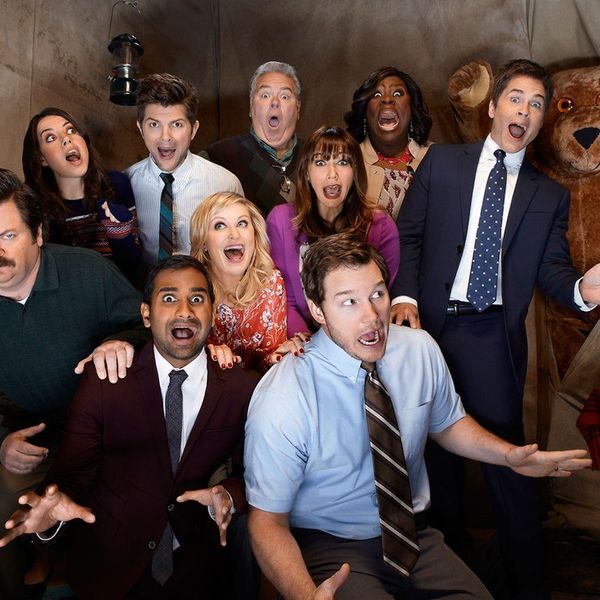The comedy of Fred Armisen and Carrie Brownstein is unique in many different ways. Their elaborate and tasteful use of sound effects, dramatization and lighting elements all portray a creative take on the average sketch comedy, making it the most non-average sketch comedy out there. For those unfamiliar with the series, the comedy duo create personas that satirize the laid-back, "weird" societal atmosphere of Portland, Oregon. Season six episode three titled, "Weirdo Beach" contains elements, that as an avid viewer of comedy, I have never seen done.
A continuing sketch within the episode follows Armisen, a worker bee in a white-collar office, surrounded by his co-workers as the mundane day goes on. The play then begins to settle on the notion of how possessive people can be about their own technology. However, the kicker is this: The action takes place at the Oregon School for the Deaf, and the sketch is performed completely in American Sign Language, or ASL.
As the sketch is completely silent, the humor occurs in ominous music accompanied by Armisen's crazy stare, the seemingly incompetent forces of those around him and repetition of his charger being used without his permission throughout the day. The sketch wasn't only different, but it brought attention to a serious issue that viewers are not aware of.
The under-representation of deaf actors in Hollywood only adds to the already outlandish diversity problem Hollywood faces. It's estimated that nearly twenty percent of Americans live with a form of hearing disability, yet members of society who are deaf and hard of hearing continue to remain oppressed by mainstream culture.
Although the last few years have shown an uprising in deaf visibility, it was partly because of the family drama on ABC "Switched at Birth." The show managed to not only feature deaf actors and actresses but brought real issues surrounding deaf culture to a mainstream audience. To show perspective, one of the most well known deaf actresses, Marlee Matlin, won an Oscar for Best Actress for her role in "Children of a Lesser God" in 1986. Upon its premiere, it was labeled the first movie since the silent film era that featured a deaf actor as the lead character. For 50 years, Hollywood continuously overlooked any possibility of deaf actors and actresses. Matlin made an overwhelming difference in portraying a range of characters that deaf film and movie stars play.
While there’s a seed of a good idea in how weirdly possessive people get about their electronics, the decision to set the action at the Oregon School for the Deaf is a baffling decision. Every beat of the sketch — ominous music, crazy Armisen stare, appearance by Moshe Kasher — feels like it could have just as easily happened in any other office setting, and the gimmick that it’s silent adds nothing to the joke beyond making sure that everyone knows the ASL for “my charger.” Plus, the fact that Armisen’s character has to bang on tables and windows to get attention (i.e. make some noise), brushes up on being insulting. With no obvious reason, trying to figure out the reason detracts from any inherent joke and creates the one false note in an episode that does a good job at simply being funny.




















